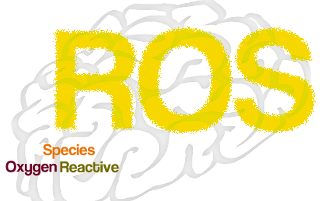
by Ohara Augusto
You may be thinking that the above title means that ROS are bad to our central nervous system because they trigger oxidative reactions that can damage it. Instead, the message here is that the term ROS obscures the mind to the point of hindering the advances in the understanding of the multiple roles of free radicals and oxidants in physiology and pathophysiology.
ROS appeared as an abbreviation for Reactive Oxygen Species but abbreviations are useful when they have specific meanings. ROS is not truly an abbreviation because it groups together molecules with entirely different chemical and biological properties. Also, it is not accepted as a standard abbreviation in chemistry because it refers to no specific molecule. Nevertheless, the term ROS is extensively employed in the literature probably because of the hugely different backgrounds and training of the investigators currently interested in redox biology.
An exemplar case is the interesting work published early May in Nature [1]. The authors discovered a protein that facilitates the degradation of the NADPH oxidase from phagocytes (NOX2) through the endoplasmic reticulum-associated degradation pathway. Despite the long established fact that NOX2 is a superoxide anion producer, the authors named the protein described by them, Negative Regulator of ROS (NRROS). Unfortunately, this name is unlikely to favor the fully understanding of how NOX2 regulation by the protein ensures oxidative damage to pathogens while limiting collateral tissue damage.
Due to countless similar cases, the Editor in Chief and the Associated Editors of Free Radical Biology and Medicine (FRBM) recommend that the term ROS should not be used without definition [2]. As discussed by Winterbourn in her excellent 2008 review: “The term ROS is generally taken to encompass the initial species generated by oxygen reduction (superoxide or hydrogen peroxide) as well as their secondary reactive products. RNS (Reactive Nitrogen Species) is also in common usage to describe reactive species derived from nitric oxide. There is clearly overlap and crosstalk between the production, function and decomposition of the two groupings, especially because of the highly favored reaction between superoxide and nitric oxide to give peroxynitrite.” [3]
Therefore, the FRBM´s Editors suggest that the preferred practice should be to use the name of the identified species. The use of the terms ROS or RNS can be accepted when the species is unknown, or when it might be one of several molecules that have been implicated without certainty. But, it is then crucial that this is clearly stated. The use of ROS and RNS in the text should be discouraged, particularly when the actual species are known or can be reasonably inferred. The terms should also not be used in manuscript titles, tables or figure legends[2].
At this point in the history of free radical biology and medicine, adherence to appropriate terminology and to robust methodology are required to progress the field [2], as repeatedly emphasized among the members of the Redoxoma network.
Ohara Augusto
Director of CEPID Redoxoma
Departamento de Bioquímica, Instituto de Química
Universidade de São Paulo
References
- Noubade, R. et al. Nature 509, 235-239, 2014.
- Forman, H. J. et al. Free Radic. Biol. Med., under review.
- Winterbourn, C. C. Nature Chem. Biol. 4, 278-286, 2008.
Comments
Excellent point Ohara to which I fully agree! Thanks for the text.